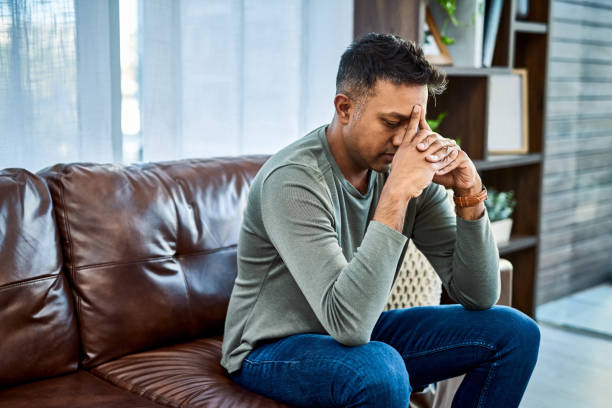Key Takeaways
- IOP for Mental Health bridges the gap between inpatient and outpatient care, offering structured support while allowing for daily life responsibilities.
- People can maintain connections with family, pursue education, or continue working while actively participating in treatment.
- Evidence-based therapy, peer support, and flexible schedules make IOPs an accessible and effective option for many dealing with mental health challenges.
- Research demonstrates that IOPs significantly improve symptom management and emotional wellness.
- Developing practical coping skills during IOP participation often leads to lasting benefits outside the program setting.
What Is IOP for Mental Health?
Intensive Outpatient Programs, frequently called IOPs, have grown in popularity in the mental health field for their unique blend of comprehensive care and personal flexibility. Unlike full-time residential or inpatient treatment, which requires participants to live at a facility, IOP for Mental Health allows individuals to receive high-quality support while returning to their homes each day. Program structures usually include frequent, scheduled therapy sessions several times per week, usually in a clinical or community environment, while enabling participants to sleep in their own beds and engage with their families or social circles.
Mental Health Intensive Outpatient Program in Knoxville, TN, serves as just one example of how specialized IOPs across the country empower people facing depression, anxiety, trauma, and related concerns. IOPs are particularly valuable for those who need more than occasional outpatient therapy, but who do not require 24/7 safety monitoring of inpatient care. This format helps bridge the treatment gap, making responsive mental health care more accessible, even for those with busy family or work obligations.
Why Flexible Treatment Matters
One of the main barriers to traditional mental health care is the requirement to pause other life activities. Many people cannot escape their professional duties, caregiving responsibilities, or educational pursuits, even when struggling emotionally. IOP for Mental Health was explicitly developed to address this challenge. Its blend of daytime or evening therapy sessions ensures that high-quality support is never out of reach, regardless of someone’s age, lifestyle, or schedule.
The National Institute of Mental Health has underscored the value of this flexibility in research, which found that ongoing, accessible forms of mental health care—including adaptable programs like IOP—result in greater engagement and improved outcomes. Flexibility increases the likelihood that individuals will remain consistent with their treatment goals, sustain recovery, and even reduce symptom relapse rates. In short, when care is built with the individual’s life in mind, both attendance and results improve dramatically.
- Maintain essential family roles and relationships while receiving care
- Continue contributing at work, keeping up with professional aspirations
- Build mental health practices into daily routines for sustainable change
Key Components of a Successful IOP
What does a typical IOP for Mental Health look like in action? Most robust programs offer a multi-layered treatment approach anchored by group therapy, where individuals connect with peers facing similar struggles. Regular group sessions foster trust and empower participants to share stories, strategies, and reassurance, reducing feelings of isolation and building a mutual support network. Group therapy is typically complemented by individual counseling, in which a participant works closely with a therapist on personal challenges, goal setting, and tracking progress.
Another crucial element is skill-building, ranging from coping strategies for anxiety or depression to conflict resolution and effective communication. Psychoeducation is often woven throughout the program, helping people better understand how mental health symptoms develop and how to manage or reduce them. Many IOPs also integrate holistic practices, such as mindfulness training or stress-reducing activities, further broadening the tools participants can use daily.
- Group Therapy: Encourages open sharing, shared insights, and accountability.
- Individual Sessions: Provide personalized guidance and deeper exploration of unique obstacles.
- Skill-Building Workshops: Teach resilience, problem-solving, and emotional regulation skills.
- Holistic Care: May include wellness coaching, mindfulness, or nutrition advice as part of overall wellness.
Evidenced Benefits: What Research Shows
There is a solid and growing body of evidence supporting the effectiveness of IOPs for individuals living with mental health disorders. Studies demonstrate that participants frequently experience reductions in depressive symptoms, anxiety levels, and distress associated with trauma. Unlike self-guided interventions or infrequent outpatient sessions, the structure and intensity of an IOP for Mental Health keep people motivated and accountable for maintaining healthy habits, both during and after participation.
As highlighted in US News, intensive therapy options such as IOPs support lasting recovery by emphasizing practical, real-world skills and ongoing community involvement. Participants benefit from peer relationships formed during group sessions, which can become vital supports after completing formal treatment. Evidence further suggests that individuals who engage in IOPs see improved treatment completion rates, greater satisfaction with their care, and lower relapse rates than standard outpatient services.
What to Expect in an IOP for Mental Health
Entering an IOP can feel daunting at first, especially for those unfamiliar with mental health programs. However, most people find that the structure soon becomes a source of comfort and routine. Sessions are often scheduled three to five days weekly, ranging between two and four hours daily. Activities are designed to be interactive and relevant, focusing on practice and gradual mastery of new coping strategies. Therapy targets the underlying stressors, emotional patterns, or behaviors contributing to someone’s distress.
- Programs prioritize flexibility, sometimes offering day or evening tracks to fit participants’ needs.
- Regular feedback and goal-setting checkpoints with licensed clinicians ensure progress stays on track.
- Participants often complete homework assignments or practice newly learned skills between sessions, accelerating growth.
Over time, this hands-on, community-based structure supports short-term stability and fosters the confidence and skills individuals need to thrive well beyond the program itself.
Tips for Getting the Most Out of IOP
- Stay honest and communicative with your therapy team about challenges and setbacks. Transparency paves the way for more tailored support.
- Invite family members or close friends to engage, when possible, as a source of encouragement and accountability.
- Set realistic, incremental goals for yourself, track progress, and remember that every step forward matters—even small wins add up.
- Practice the strategies you learn inside and outside the program environment to reinforce new habits and insights.
- Ask for continued check-ins or referrals as you transition from the IOP for ongoing support.
Strengthening your support system and embracing active participation are key ways to make the most of your IOP experience, and can be instrumental in maintaining gains after treatment ends.
Real Life Examples of Success
Countless people attribute significant improvements in their quality of life to their involvement in IOP for Mental Health. For example, one individual who felt overwhelmed by constant anxiety learned to use grounding and relaxation techniques developed during group workshops. Another participant, previously struggling in silence with depression, connected with others facing similar challenges and found new hope through shared experiences. Someone transitioning from inpatient care gradually rebuilt confidence, maintained employment, and repaired family relationships—all thanks to the therapeutic tools and peer support offered in IOP.
These stories stand as powerful reminders that meaningful recovery is possible with compassionate, structured support. Each person’s path looks a little different, but the lasting benefits of IOP reach far beyond symptom reduction.
When IOP for Mental Health Is a Good Choice
- If you are experiencing increased mental health symptoms but remain safe and capable at home, IOP can provide extra support without requiring hospitalization.
- People leaving inpatient care often find that IOP gives them the structure needed to make a smooth transition back to everyday life, while still under professional guidance.
- If you feel isolated or need a peer group, IOP’s group therapy provides a ready-made support network that can last long after the program ends.
- Those who are stuck in their progress or need new ways to cope with stress, emotions, or relationships may benefit immensely from the diverse strategies introduced in IOP.
Think about whether you can make a regular commitment, be open to feedback, and seek more structure in your mental health journey. If so, IOP may fit your needs well.



